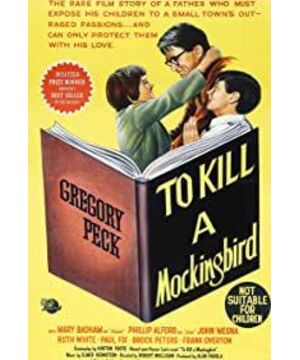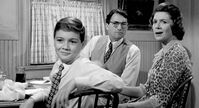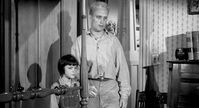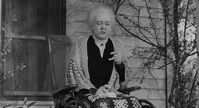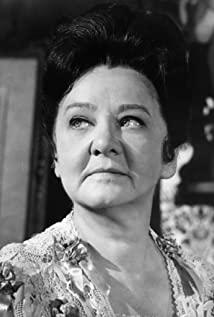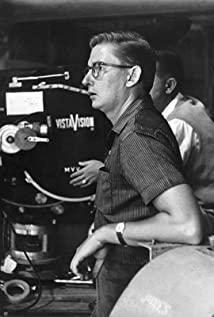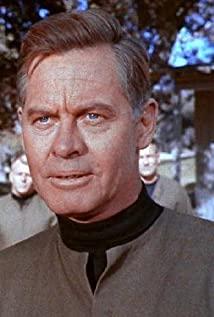01
"Robins only sing to us, they don't do anything bad, they don't eat fruits and vegetables in people's gardens, they don't make nests in corn barns, they just sing for us faithfully."
This is Atticus's evaluation of the robin. He cleverly compares the robin to a type of people represented by black Tom Robinson. They are kind-hearted and never do anything to hurt others.
He was a robin himself, and he sat upright and did the best he could to serve people and fight for the equality of black people they deserve as human beings.
The ending of "To Kill a Mockingbird" is a bit sad, Tom escaped without waiting for an appeal, only to be shot by prison guards. The case is over, Tom is freed, Atticus is freed from it, and Jem is burdened with heavy shackles.
He suddenly became very silent, didn't like talking to Scooter, and seemed to have grown up overnight. He suddenly understood the cruelty in the adult world, saw the truth of evil, and knew the inequality between people, all of which made him breathless and made him extremely suspicious of this world.
It was thought that the story would end with Tom's death, and people would return to their previous lives, but it didn't. The good people were killed, and the bad people remained in the world to do evil.
Bob Ewell wanted to assassinate Jem and Scooter one dark night. This was his revenge on Atticus for defending Tom. During the murder, he was accidentally killed by his own. Stabbed to death.
This is also a good ending, as if it was arranged by God, one life is worth one life, and Bob Ewell's life is worth Tom's life. Even good and evil will always be rewarded.
The eccentric Arthur, who has always been a mystery throughout the text, finally appears, and he rescues Jem and Scooter in a time of crisis. His presence taught Scooter a lesson, as Atticus said - when you finally get to know them, you'll find that most people are good people.
02
We're all used to evaluating people as "good" and "bad," simply inferring from some of the things he does and categorizing them as "good" or "bad." If the person does all kinds of good things on weekdays, he is a good person, but if the person does a bad thing, he is a bad person.
This standard of evaluating people was first learned from the people around us when we were young. Around us, there must be relatives and friends who are going to spread the word about who is good and who is bad. In a subtle way, we learned to evaluate a person in this way.
Just like the children of Atticus, they are still young, they are curious about everything, they are easily affected by the outside world, and they learn all kinds of behaviors in them.
At first, they would call their neighbor Arthur a weirdo. It was all the hearsay of the neighbors, plus they secretly figured it out. But it wasn't until in the end, when he rescued them both in the dark, that they knew that Arthur wasn't a bad guy.
He just shut himself up at home and lived a secluded life, perhaps because of his despair in the world, perhaps because he did not want to face the rumors from the outside world, perhaps he just wanted to be a good person in silence.
We often say, don't judge a person lightly, because what you see is only a few parts, most of which are heard from others' mouths, and you don't know the real him.
Only after you really understand it can you know what he really looks like.
03
However, arbitrarily evaluating a person is a mistake that each of us is prone to make.
I don't remember where or who said it, but I like it very much - you never know how many versions of you are in other people's mouths, or what other people do to defend themselves Say something to slander you, let alone those unrealistic gossip.
In "To Kill a Mockingbird", there is such a scene description. There is a fixed time every week for the women's party day. Once, Scooter was forced to join the party and found that they were chatting. The topics are very boring, either gossip about others or discuss men.
I believe that such a scene must be familiar to all of us. Whether in the countryside or in the city, women always like to gather together, Zhang's parent, Li Jiashuo, to discuss the right and wrong of other people's homes, and then pat their butts and go home to cook.
Many rumors are spread from these small groups gathered together. They only know that one person has done one thing, and they make up some details that have never happened, and then try their best to add various decorations. Rumors spread beyond recognition.
They never care about the truth, they only care if their curiosity is satisfied.
Just like the weird Arthur who appeared once in "To Kill a Mockingbird", no one knows everything about him, and everyone is guessing, thinking of him as a bad guy and a weirdo.
The author's foreshadowing at the beginning, and the mystery is revealed at the end, probably to tell us through this character, don't judge others lightly, if you don't know it.
04
If we want to understand a person’s personality, there are many ways. We can get along with others, we can use his work ability, we can get in touch with him personally, but we must not understand it through the mouths of others.
What we understand in that way is very one-sided and very incomplete, and cannot fully prove a person.
The novel "To Kill a Mockingbird" taught us a lot, taught us how to be human, taught us to be honest, kind, and brave, and taught us not to judge a person lightly.
By narrating the growth of three children, the author observes the society from their perspective, discovers many problems that adults ignore, and points out the unreasonable places.
Watching them grow and change slowly, I seem to see my own childhood and my own growth trajectory.
I wish I could be like Atticus, brave, kind, and righteous.
Author: Xia Keqing , the post-90s Leo is cool, I am fine, and I hope you are too. Personal original public account: Xia Keqing (ID: XMQ-08), Weibo: Meet Xia Keqing. If you like my text, please remember to let me know.
View more about To Kill a Mockingbird reviews


